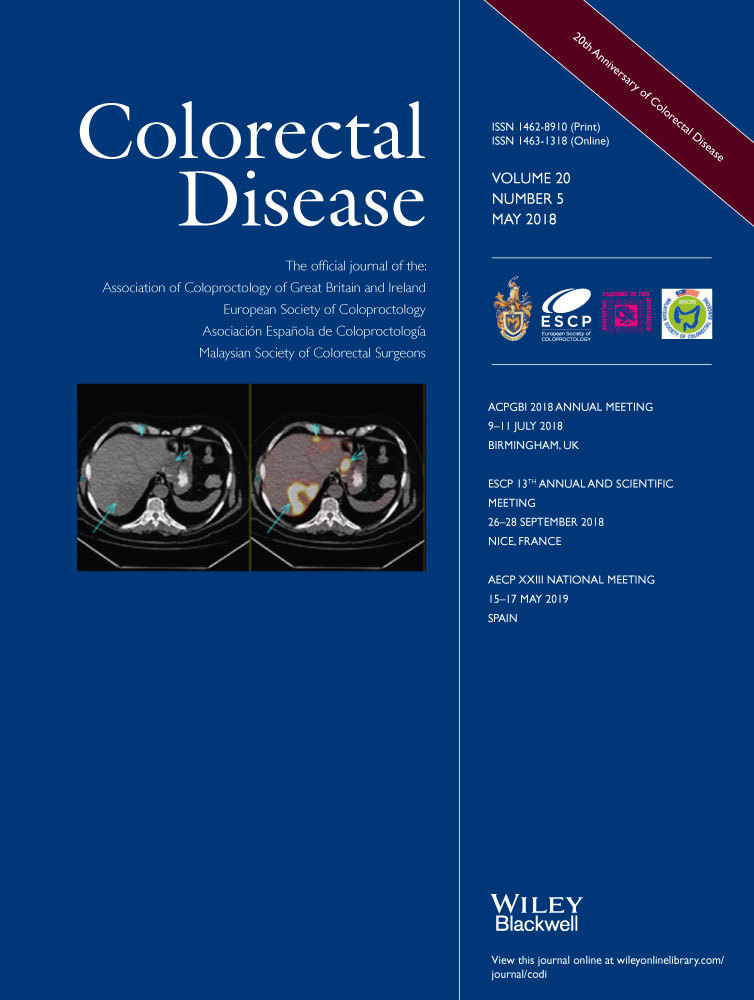The impact of robotic surgery on quality of life, urinary and sexual function following total mesorectal excision for rectal cancer: a propensity score-matched analysis with laparoscopic surgery
Abstract
Aim
Quality of life (QoL) and functional outcomes are at risk of being impaired after rectal surgery, but there has been no large prospective study to thoroughly assess QoL according to surgical approach. We have investigated the impact of laparoscopic and robotic total mesorectal excision (TME) on QoL and functional outcomes.
Method
Patients undergoing laparoscopic or robotic TME for rectal cancer between 2009 and 2013 were prospectively included in this questionnaire-based survey of QoL together with variations in urinary and sexual function. A propensity score analysis was retrospectively conducted to compare outcomes between groups in a cohort matched 1:1 for age, sex, body mass index, preoperative chemoradiation status and tumour height. The survey was performed preoperatively and 3, 6 and 12 months after surgery.
Results
Global health status/QoL was similar between the two groups for 130 matched pairs, but the robotic group showed better role, emotional and social functioning and experienced less fatigue and financial difficulty. International Prostatic Symptom Scores in men increased postoperatively, with significantly less impairment in the robotic group at 6 months. These scores were comparable to preoperative scores at 6 months in the robotic group and at 12 months in the laparoscopic group. Of 48 sexually active men in each group, International Index of Erectile Function-5 scores decreased postoperatively, returning to preoperative levels at 6 months in the robotic group and at 12 months in the laparoscopic groups.
Conclusion
The robotic approach for TME was associated with less impairment of urinary and sexual function; QoL was comparable to the laparoscopic approach.




